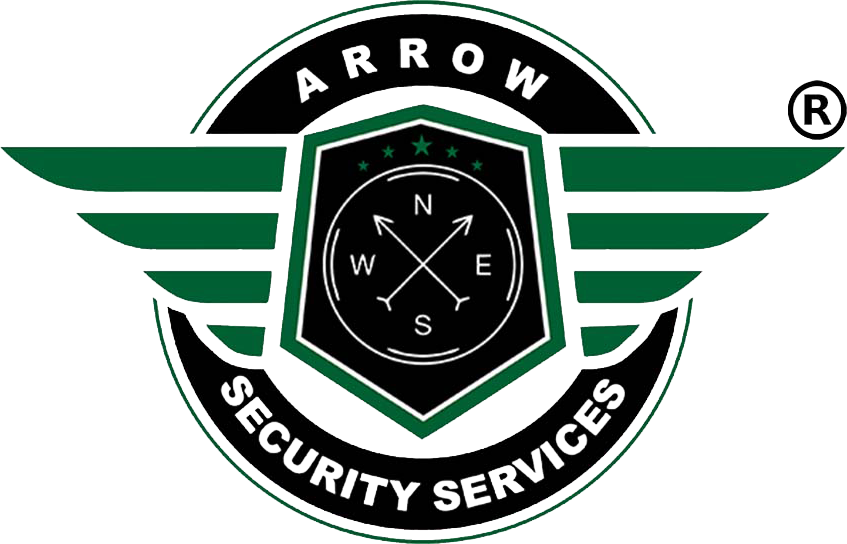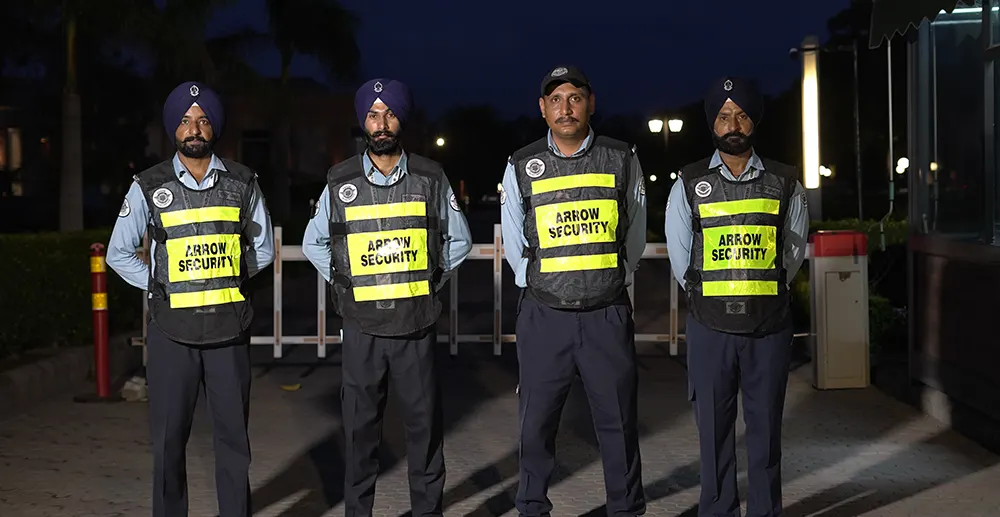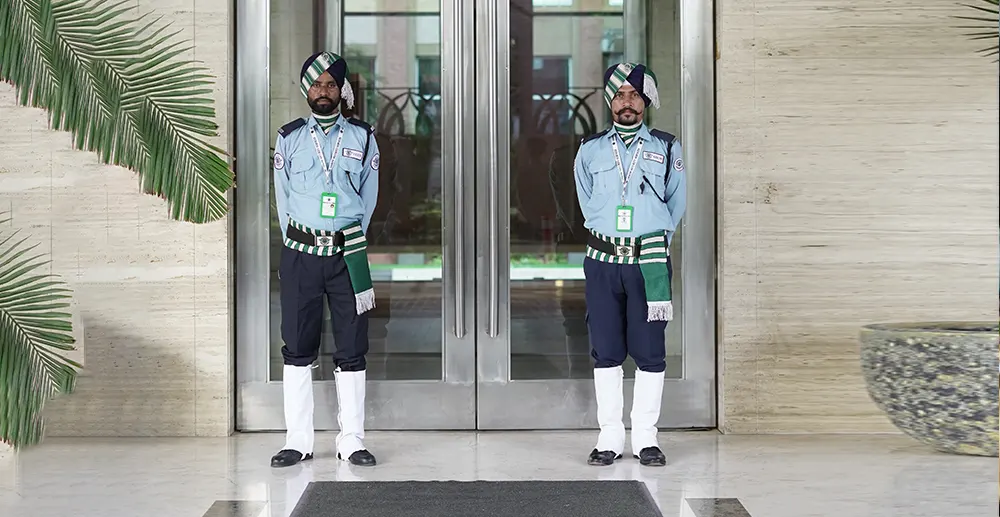
An unarmed security guard plays a crucial role in maintaining safety and security in various settings such as residential communities, commercial properties, and public events. Unlike armed guards, they do not carry firearms but still perform a wide range of duties to ensure the safety of people and property. Here’s an overview of the role, responsibilities, and requirements for an unarmed security guard:
Responsibilities
- Surveillance: Monitoring security cameras and conducting regular patrols to detect any suspicious activity.
- Access Control: Checking identification, managing entry points, and ensuring only authorized individuals gain access to the premises.
- Incident Reporting: Documenting and reporting any incidents or irregularities, including theft, property damage, or violations of company policies.
- Emergency Response: Responding to emergencies such as fires, medical situations, or security breaches and coordinating with emergency services.
- Customer Service: Assisting visitors with directions, providing information, and maintaining a helpful and professional demeanor.
- Conflict Resolution: Diffusing potentially volatile situations through verbal communication and ensuring situations are resolved peacefully.
Skills and Qualities
- Observation Skills: Keen attention to detail to notice irregularities or potential security threats.
- Communication: Clear and effective communication, both verbal and written, to interact with the public and report incidents.
- Problem-Solving: Ability to assess situations quickly and determine the appropriate course of action.
- Physical Fitness: Good physical condition to perform patrols and handle any physical tasks that may arise.
- Professionalism: Maintaining a professional appearance and attitude at all times.

An armed security guard, often referred to as an armed security officer or gunman, is a professional trained to protect people and property using firearms. These individuals provide heightened security measures and are often employed in situations where there is a higher risk of violent crime or threats. Here’s a detailed look at the role, responsibilities, and requirements for an armed security guard:
Responsibilities
- Protection: Safeguarding people, property, and assets against threats such as theft, vandalism, and violence.
- Armed Patrols: Conducting patrols with firearms, both on foot and in vehicles, to deter criminal activity and respond to incidents.
- Access Control: Monitoring and controlling access to secure areas, checking identification, and ensuring only authorized individuals enter.
- Incident Response: Responding to and managing emergency situations, including armed threats, and coordinating with law enforcement.
- Surveillance: Using security cameras and other surveillance equipment to monitor premises for suspicious activity.
- Conflict Resolution: Handling conflicts that may escalate to violence, using de-escalation techniques and, if necessary, firearms.
- Emergency Procedures: Executing emergency procedures and evacuation plans in the event of a crisis.
- Documentation: Writing detailed reports on incidents, daily activities, and any security breaches or threats encountered.
Skills and Qualities
- Firearms Proficiency: Skilled in the use of firearms, including proper handling, safety protocols, and marksmanship.
- Observation Skills: Acute attention to detail to identify potential security threats.
- Communication: Clear and concise communication skills, both verbal and written, for interaction with the public and reporting incidents.
- Judgment and Decision-Making: Ability to quickly assess situations and make sound decisions, especially under pressure.
- Physical Fitness: Good physical condition to perform patrols and respond to physical threats.
- Professionalism: Maintaining a high level of professionalism and a calm demeanor in high-stress situations.
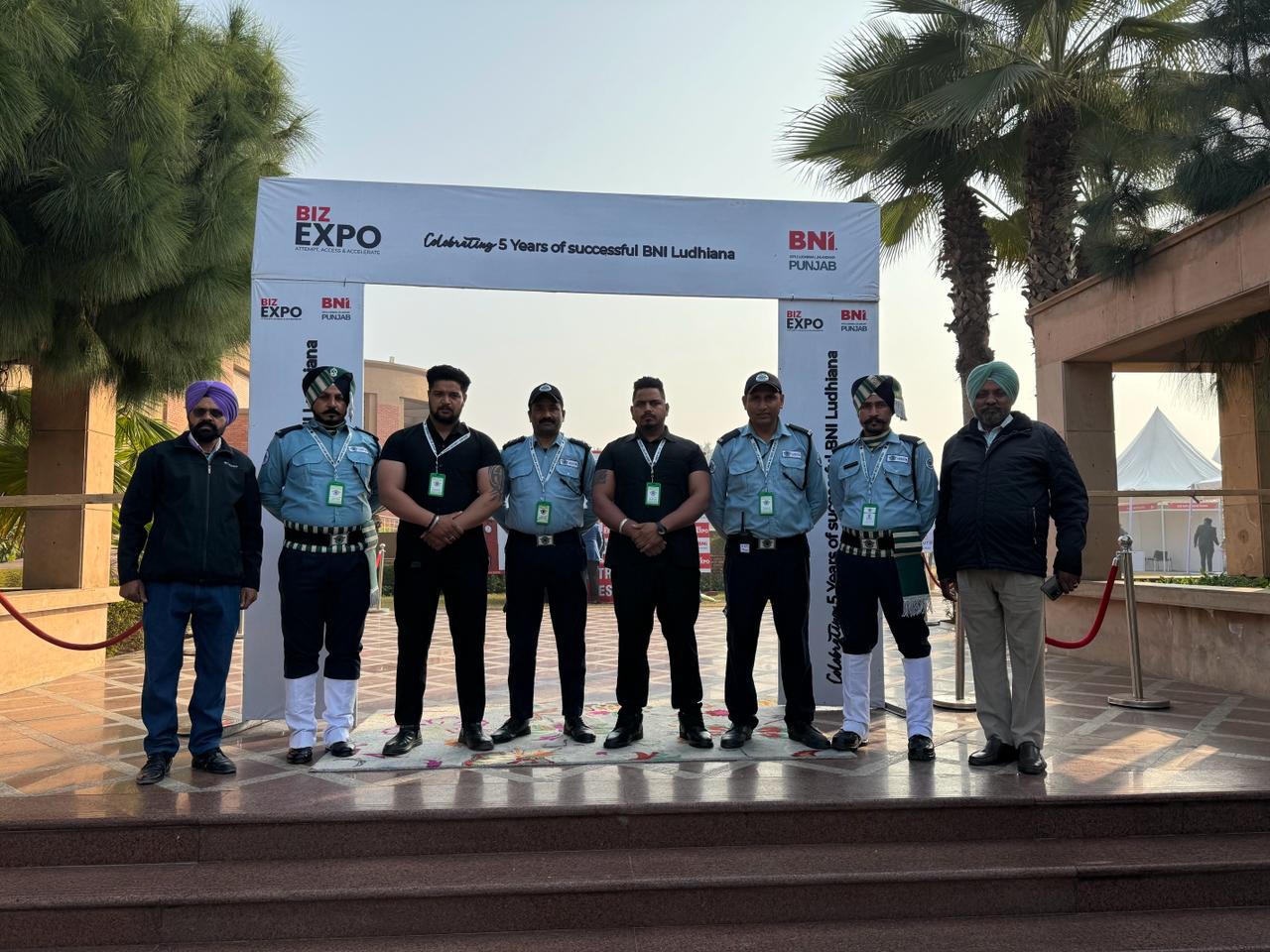
A bouncer, also known as a doorman or door supervisor, is a security professional responsible for maintaining order and safety at venues such as nightclubs, bars, concerts, and other entertainment events. Bouncers play a crucial role in ensuring a safe and enjoyable environment for patrons by enforcing venue policies, managing entry, and handling potential disturbances. Here’s an overview of the role, responsibilities, and requirements for a bouncer:
Responsibilities
Access Control:
- Checking identification to verify age and entry eligibility.
- Managing entry points to control crowd flow and prevent unauthorized access.
- Enforcing dress codes and other venue-specific entry requirements.
Patrolling:
- Conducting regular patrols inside and around the venue to monitor crowd behavior.
- Observing for any signs of trouble, such as overly intoxicated individuals or aggressive behavior.
Conflict Resolution:
- Intervening in disputes and diffusing potentially violent situations.
- Escorting disruptive or unruly patrons out of the venue safely and efficiently.
- Working with venue management and law enforcement when necessary.
Safety and Emergency Response:
- Responding to emergencies, such as medical incidents or fire alarms, and coordinating with emergency services.
- Ensuring that safety protocols and evacuation procedures are followed during emergencies.
Customer Service:
- Providing assistance and information to patrons, such as directions or answers to questions about the venue.
- Maintaining a friendly and approachable demeanor to create a positive atmosphere.
Enforcing Venue Policies:
- Upholding rules related to alcohol consumption, smoking, and behavior within the venue.
- Monitoring for and preventing illegal activities such as drug use or underage drinking.
Skills and Qualities
- Physical Fitness: Strong physical condition to handle the demands of the job, including standing for long periods and managing physical confrontations.
- Observation Skills: Keen attention to detail to notice potential problems before they escalate.
- Communication: Clear and effective communication skills for interacting with patrons, colleagues, and law enforcement.
- Conflict Resolution: Ability to de-escalate situations and handle conflicts calmly and professionally.
- Professionalism: Maintaining a professional appearance and demeanor at all times.
- Integrity: High ethical standards and reliability, as the role involves handling sensitive situations and upholding legal and venue policies.
uations.

A private security officer plays a vital role in safeguarding individuals, property, and assets across a wide range of environments. They work for private security firms or are directly employed by organizations to provide tailored security services. Here’s an in-depth look at the role, responsibilities, and requirements for a private security officer:
Responsibilities
- Surveillance and Monitoring: Keeping a vigilant eye on premises through patrols and security camera systems to detect and prevent any suspicious activities.
- Access Control: Managing entry points, checking identification, and ensuring only authorized personnel or visitors are allowed entry.
- Incident Response: Responding promptly to alarms, emergencies, and incidents, including coordinating with local law enforcement or emergency services when necessary.
- Patrolling: Conducting regular and random patrols of the premises, both inside and outside, to deter and detect unauthorized activities.
- Customer Service: Providing assistance and information to visitors, employees, and clients, often serving as the first point of contact.
- Report Writing: Documenting daily activities, incidents, and any security breaches in detailed reports.
- Safety Checks: Conducting routine checks to ensure that all safety and security equipment, such as alarms, locks, and surveillance cameras, are functioning properly.
- Conflict Resolution: Addressing and resolving conflicts or disturbances in a professional and effective manner.
- Training and Drills: Participating in training sessions and emergency drills to remain prepared for any type of security threat.
Skills and Qualities
- Observation Skills: Sharp attention to detail to notice any irregularities or potential security threats.
- Communication: Effective verbal and written communication skills for interacting with the public, colleagues, and writing reports.
- Problem-Solving: Ability to assess situations quickly and make appropriate decisions to resolve issues.
- Physical Fitness: Good physical condition to perform patrols, respond to emergencies, and handle physical tasks.
- Professionalism: Maintaining a professional demeanor and appearance at all times, especially under stress.
- Integrity: High ethical standards and reliability, as the role often involves handling sensitive information and situations.
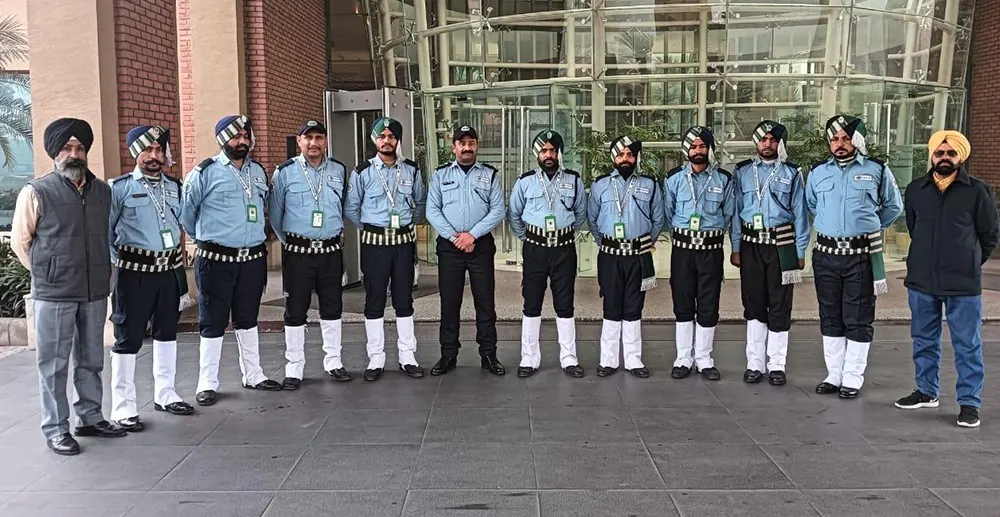
Arrow Security’s Emergency Response Team is a specialized unit trained to provide rapid and effective responses to a variety of emergencies, ranging from medical crises to security threats. Their mission is to ensure the safety and security of people and property in high-risk situations by deploying highly trained personnel, utilizing advanced technology, and implementing well-established protocols.
Here are some key features of Arrow Security’s Emergency Response Team:
Trained Professionals: The team consists of security officers, emergency medical technicians (EMTs), and other first responders who are trained to handle emergencies like active shooters, medical emergencies, fires, and natural disasters
Rapid Deployment: The ERT can quickly respond to on-site emergencies, ensuring minimal response time in critical situations. This swift action helps mitigate risks and manage emergencies effectively.
Advanced Technology: Arrow Security integrates modern security technology, such as real-time GPS tracking, surveillance systems, and Automatic External Defibrillators (AEDs), to enhance their response efforts and keep people safe during emergencies.
Comprehensive Coverage: Whether it’s a medical emergency, fire alarm, natural disaster, or a security threat, the Emergency Response Team is equipped to handle a wide range of incidents with professionalism and precision.
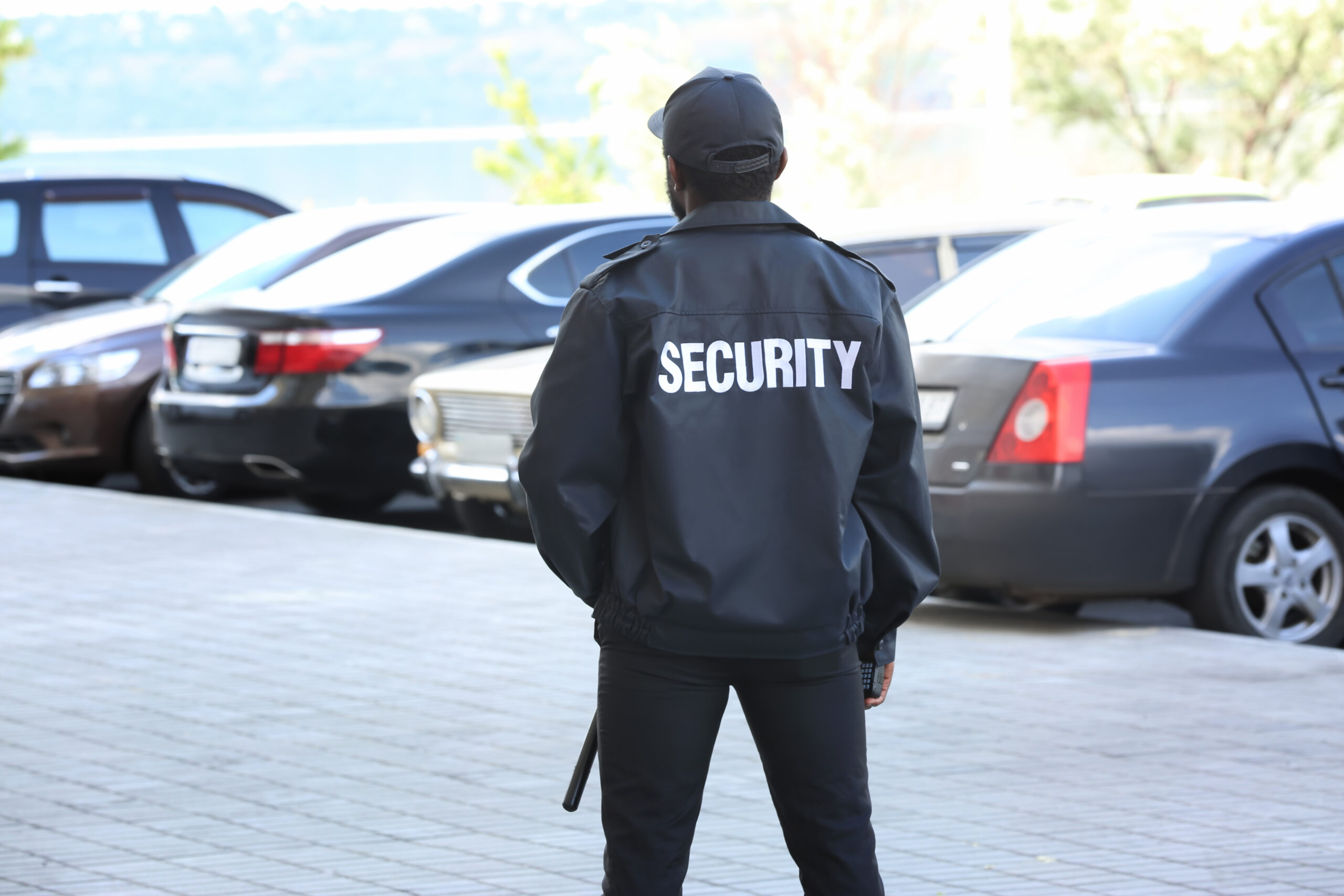
Parking enforcement involves the regulation and enforcement of parking rules and regulations in public and private parking areas. Parking enforcement officers play a crucial role in ensuring compliance with parking laws, managing parking spaces efficiently, and maintaining order in parking facilities. Here’s an overview of the roles, responsibilities, and requirements for professionals in parking enforcement:
Roles and Responsibilities
Parking Enforcement Officers
- Patrolling: Conducting regular patrols of parking areas to identify violations such as unauthorized parking, expired meters, or parking in designated no-parking zones.
- Ticketing: Issuing parking citations or tickets to vehicles found in violation of parking regulations.
- Tow Assistance: Coordinating with towing companies to remove vehicles parked illegally or posing safety hazards.
- Education and Assistance: Providing information and assistance to motorists regarding parking regulations, payment methods, and available parking options.
- Conflict Resolution: Handling disputes and complaints related to parking enforcement with professionalism and diplomacy.
- Equipment Maintenance: Ensuring that parking enforcement equipment, such as ticketing machines and handheld devices, are properly maintained and functional.
- Reporting: Documenting enforcement activities, including issuing citations and assisting with incident reports as needed.
Skills and Qualities
- Attention to Detail: Keen observation skills to identify parking violations and discrepancies.
- Communication: Clear and effective communication skills for interacting with motorists and colleagues.
- Problem-Solving: Ability to resolve conflicts and address challenges related to parking enforcement.
- Physical Fitness: Good physical condition to conduct patrols and manage enforcement activities.
- Professionalism: Maintaining a professional demeanor and adhering to ethical standards.
- Patience and Diplomacy: Remaining calm and courteous when dealing with upset or confrontational individuals.
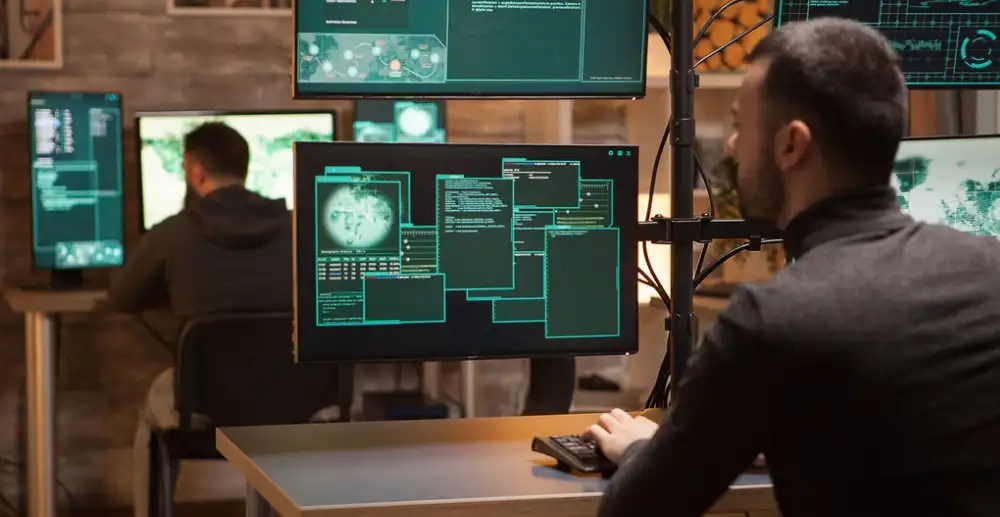
Customized Security Operations refers to the tailored approach taken by organizations to address their specific security needs and challenges. This approach involves developing and implementing security measures, protocols, and strategies that are specifically designed to mitigate risks and protect assets based on the organization’s unique requirements, industry regulations, and threat landscape.
Key components of customized security operations may include:
Risk Assessment: Conducting thorough assessments to identify and prioritize potential security risks and vulnerabilities specific to the organization’s infrastructure, systems, and operations.
Security Policies and Procedures: Developing customized security policies, procedures, and guidelines that align with the organization’s objectives, compliance requirements, and industry standards.
Threat Intelligence: Utilizing threat intelligence feeds and analysis to stay informed about emerging threats and trends relevant to the organization, enabling proactive threat detection and response.
Incident Response Planning: Creating tailored incident response plans and playbooks to effectively respond to security incidents, minimize impact, and restore normal operations in a timely manner.
Security Awareness Training: Providing customized security awareness training programs to educate employees about security best practices, policies, and procedures, empowering them to recognize and mitigate security risks.
Security Technology Integration: Deploying and integrating security technologies, such as intrusion detection systems, firewalls, endpoint protection, and security analytics tools, to strengthen the organization’s security posture and enhance threat detection and prevention capabilities.
Continuous Monitoring and Evaluation: Implementing ongoing monitoring, testing, and evaluation processes to assess the effectiveness of security measures, identify areas for improvement, and adapt security strategies to evolving threats and business requirements.

Investigation services encompass a broad range of activities aimed at uncovering facts, gathering evidence, and providing insights into various matters. These services are often utilized by individuals, businesses, legal firms, and government agencies to resolve disputes, verify information, conduct due diligence, and ensure compliance with regulations. Some common types of investigation services include:
Background Checks: Verifying an individual’s personal, professional, or criminal history.
Surveillance: Monitoring and observing individuals or locations to gather evidence discreetly.
Corporate Investigations: Examining potential fraud, embezzlement, intellectual property theft, or misconduct within a company.
Insurance Investigations: Assessing the validity of insurance claims, including workers’ compensation, disability, or property damage claims.
Legal Investigations: Supporting legal proceedings by gathering evidence, locating witnesses, and conducting interviews.
Cyber Investigations: Tracing digital footprints, investigating cybercrimes, and identifying online threats.
Due Diligence: Investigating individuals or businesses before entering into contracts, partnerships, or financial transactions.
Asset Searches: Identifying and verifying the existence and value of assets for legal or financial purposes.
Missing Persons Investigations: Locating missing individuals or gathering information about their whereabouts.
Forensic Investigations: Analyzing physical evidence, such as DNA, fingerprints, or computer data, to solve crimes or resolve disputes.
